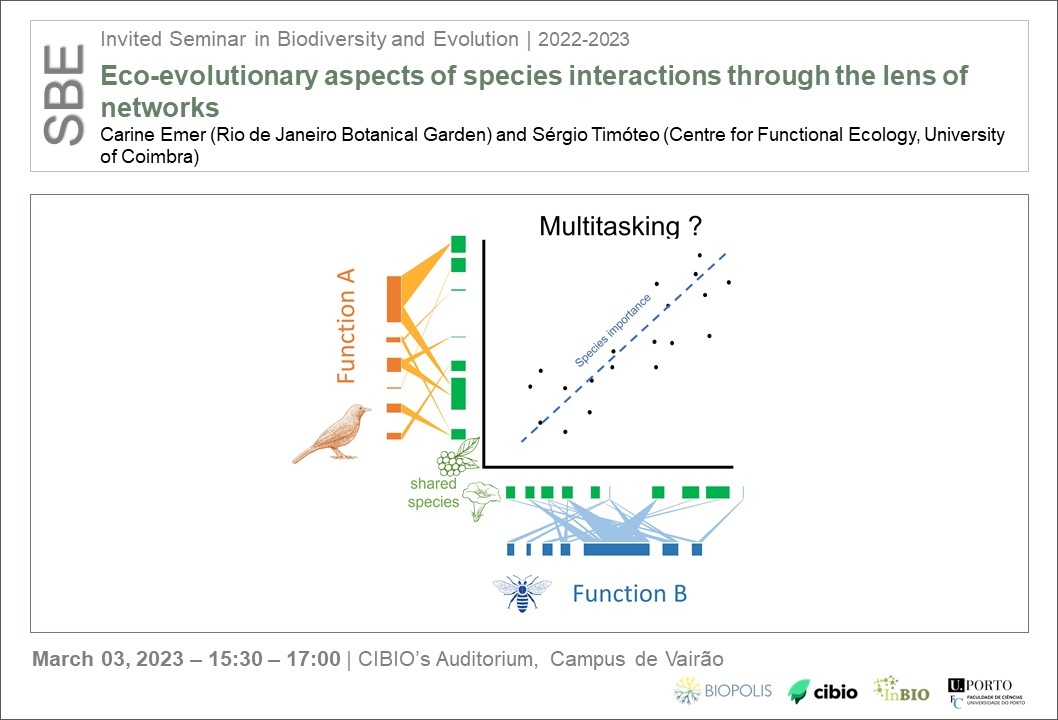Eco-evolutionary aspects of species interactions through the lens of networks
03 Mar 2023 - Carine Emer (Rio de Janeiro Botanical Garden) and Sérgio Timóteo (Centre for Functional Ecology, University of Coimbra) | 15h30 - 17h00 | CIBIO-InBIO’s Auditorium, Campus de Vairão

INVITED SEMINAR IN BIODIVERSITY AND EVOLUTION
[Host: Ana Filipa Palmeirim, 21st Century Conservation Lab - LACOS21, Applied Ecology - APPLECOL]
All species on Earth are interconnected to each other by ecological interactions, forming the baseline of biodiversity. Species interactions can be studied through the lens of ecological networks, a helpful tool to understand ecological and evolutionary processes at multiple scales of biological organisation. The first part of this talk explains how network theory was used to understand how avian seed-dispersal has been changed with fragmentation and defaunation in the Atlantic Forest of Brazil, and how it can be used to assess socio-ecological systems in the Amazon.
The second part of the will dive into the role of keystone species for multiple types of interactions. While all species engage in multiple interaction types with other species, keystone species importance is often defined based on a single dimension of their Eltonian niche, that is, one type of interaction (e.g. keystone predator). It remains unclear whether the importance of keystone species is unidimensional or if it extends across interaction types. Through a meta-analysis it is proposed that the role of keystone species extends across multiple ecological niche dimensions independently of their abundance, and with important implications for ecosystem resilience and conservation.
Carine Emer is an ecologist with broad interests in Ecology, Evolution and the Conservation of Biodiversity. Her work focuses on unveiling animal-plant interactions, including their associated ecological and evolutionary processes, and how they respond to human-driven disturbances. She combines network ecology and evolutionary thinking with natural history, ecological theory and statistical tools to understand how biodiversity is responding to the challenges imposed by the Anthropocene, an epoch dominated by human-made activities and Earth-transformations. Therefore, she is also interested in finding alternatives towards the reconciliation between nature and humanity, recently delving into socio-ecological systems.
Sérgio Timóteo is an ecologist with a keen interest in community ecology to unveil the functioning of ecological processes that rule the world around us. His research focuses on the application of network theory to understand the consequences of species interaction patterns on the functioning of ecological processes and how these can be affected by disturbances. Most recently, he is exploring the potential of a multilayer approach to study ecological networks in multiple dimensions.. For this, he takes advantage of recent developments in the field of multilayer network analysis gathering knowledge from a range of seemingly unrelated research areas.
[Host: Ana Filipa Palmeirim, 21st Century Conservation Lab - LACOS21, Applied Ecology - APPLECOL]